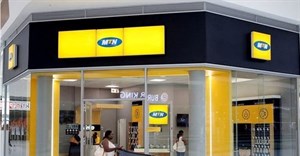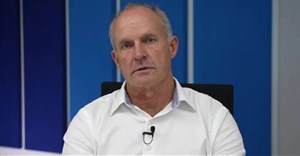Data shows mobile surge in west and central Africa
However, the group cautioned that mobile operators would need to focus on constant infrastructure development to maintain growth momentum.
West and central Africa represented one of the fastest-growing mobile communications markets in sub-Saharan Africa. Over the past few years, the region had witnessed a dramatic increase in mobile subscriptions due mainly to the surge in mobile subscriptions in Nigeria, F&S said. "The low levels of mobile broadband penetration in the region indicate that there is room for growth," it added.
New analysis from Frost & Sullivan's West and Central African Mobile Communications Market Tracker found that the mobile communications markets in Nigeria, Cameroon and the Ivory Coast earned combined revenues of $8.6 billion in 2009 and estimated this to reach $12.6 billion in 2016.
"The west and central African region is one of the most dynamic, with more than three mobile operators in each country and massive infrastructure development," noted Mervin Miemoukanda, Frost & Sullivan's information and communications technology analyst. "The intense competition among mobile operators has boosted market development in terms of offerings and technology deployed."
Unlike in other regions, most operators in central and west Africa had rolled out fibreoptic backbone, thereby bypassing the incumbent fixed-line operators' expensive transmission networks, the group said.
And although the mobile broadband penetration rate was less than 1% in the three countries, they had experienced a considerable uptake of broadband services due to the increasing adoption of social media and decrease in tariffs. In Nigeria, mobile broadband surpassed fixed broadband subscriptions over the past two years and this trend was expected to be witnessed in Cameroon and the Ivory Coast in the next three years, the research group said.
However, Frost & Sullivan noted that challenges remained. High taxes on telecom services and compulsory subscriber registration threatened to dampen market expansion. The high cost and limited availability of bandwidth also threatened to rein in market prospects.
"A number of factors currently hamper the growth of this region," said Miemoukanda. "These include low disposable income, lack of infrastructure in rural areas and the shortage of bandwidth in most countries in the region, especially in Cameroon and the Ivory Coast."
To sustain profit margins, Frost & Sullivan recommended that mobile operators should improve the quality of services through continuous infrastructure investment such as network capacity upgrade and deployments of new technologies.
"They should also focus on developing innovative solutions, such as cyber cafes for broadband services that target the mass market," concluded Miemoukanda. "Focusing on enterprise solutions and developing sound distribution channels for mobile money services will also help maintain growth momentum."
Source: I-Net Bridge

For more than two decades, I-Net Bridge has been one of South Africa’s preferred electronic providers of innovative solutions, data of the highest calibre, reliable platforms and excellent supporting systems. Our products include workstations, web applications and data feeds packaged with in-depth news and powerful analytical tools empowering clients to make meaningful decisions.
We pride ourselves on our wide variety of in-house skills, encompassing multiple platforms and applications. These skills enable us to not only function as a first class facility, but also design, implement and support all our client needs at a level that confirms I-Net Bridge a leader in its field.
Go to: http://www.inet.co.za











